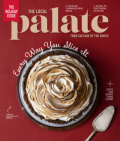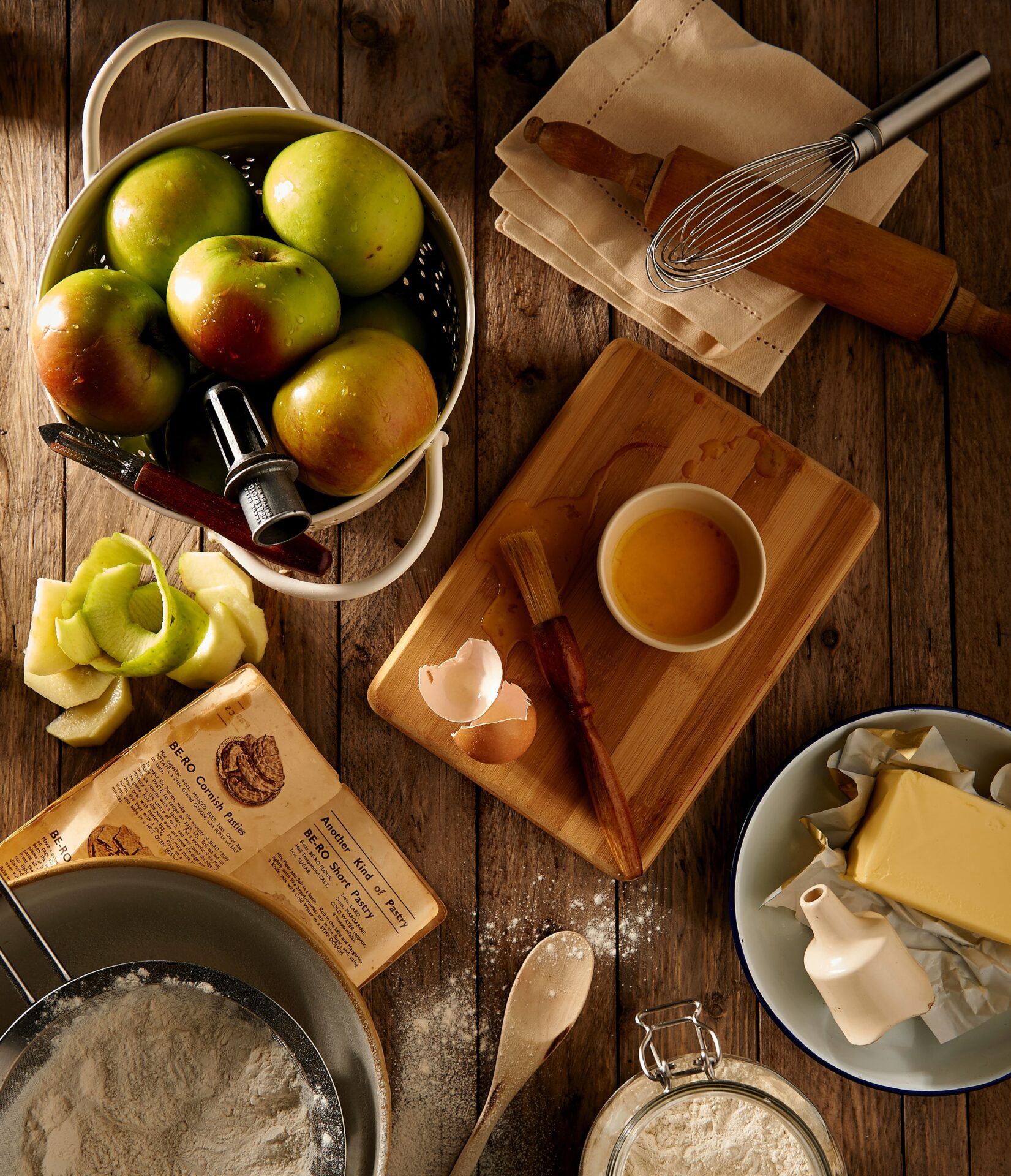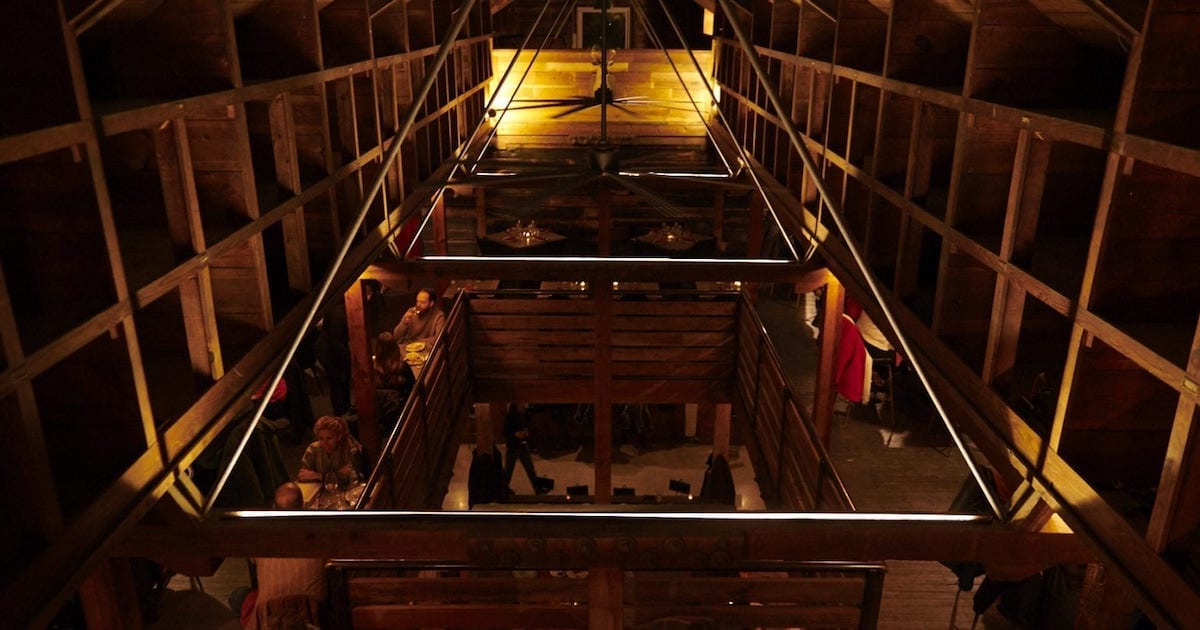In a historic woodland setting in the shadow of the Blue Ridge Mountains, Burial Beer Company’s sprawling new digs, Forestry Camp, tells the story of the community who helped to shape it, past and present.
To step through the doors of Forestry Camp Bar and Restaurant in Western North Carolina is to cross a threshold into another realm. An array of axes on the wall and a sea of time-worn yellow pine sets a suitably rustic-chic scene just two and a half miles south of bustling downtown Asheville. Yet the vintage vibe is much more than the sum of its carefully curated parts.
“There’s a soul to this building,” says co-owner Jess Reiser about the New Deal-era structure. In 1937, after Franklin D. Roosevelt established the Civilian Conservation Corps to put unemployed men to work on public works projects during the Great Depression, the US government built a campus of barracks a stone’s throw from the railroad chugging through Asheville’s Biltmore Village. They called it Forestry Camp.
Here in the mountains of Western North Carolina, the CCC began building what many consider the country’s greatest scenic byway: the Blue Ridge Parkway, which snakes 469 miles across the Appalachian Mountains from Shenandoah National Park in Virginia to the Great Smoky Mountains in North Carolina. Men toiled by hand to cut the curving road and its iconic tunnels into the rugged landscape—stashing their spare personal belongings, extra lumber, and tools in spartan cubbies at Forestry Camp. Some of their numbered identification markers remain as clues to the past.
More than eighty years later, the Blue Ridge Parkway provides the backbone of the regional tourism industry and helps bring a nearly endless stream of visitors to Asheville. Also big business these days? Craft beer—such as the nuanced brews created by Forestry Camp’s owners, the founders of one of Asheville’s most popular breweries, Burial Beer Co. In other words, the pairing here is as natural as, say, cracking a cold one after a long hike through the woods.
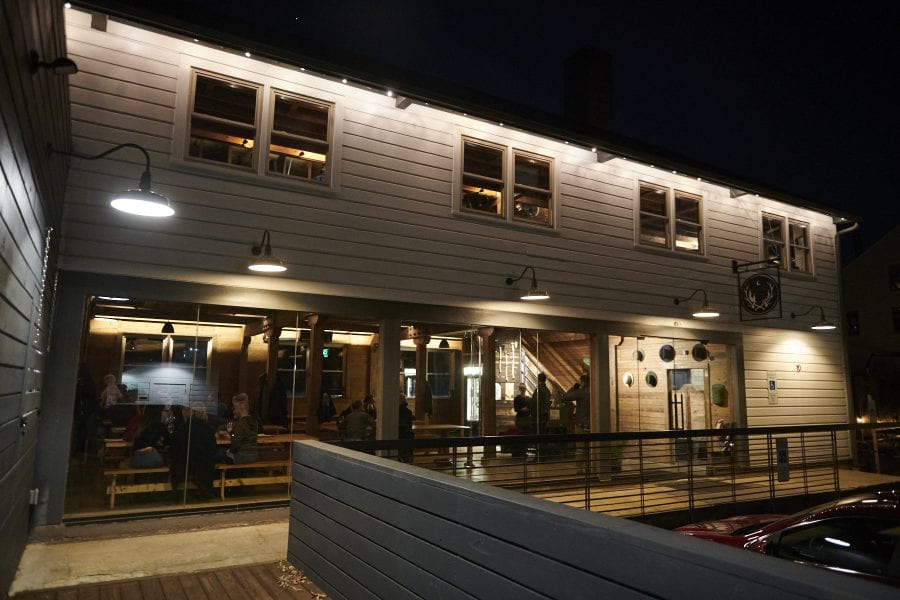
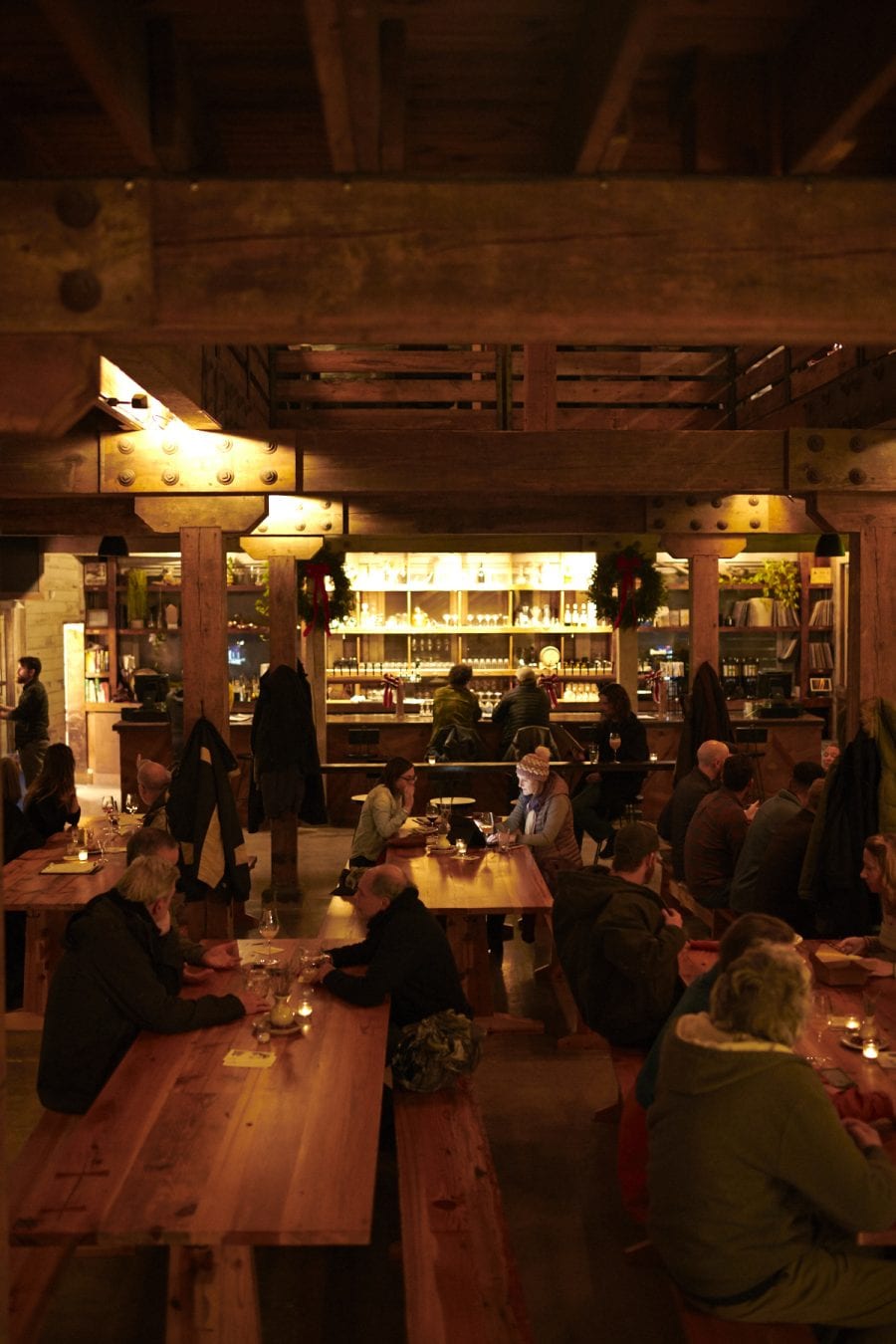
FROM THE GROUND UP
In fact, a sense of place—and the feeling of another time—pervades the entire grounds of Forestry Camp, which sprawls across two acres and six buildings. In addition to the two-story bar and restaurant, there are offices, a pair of barrel-aging houses, and a production brewery with the capacity to churn out 10,000 barrels a year.
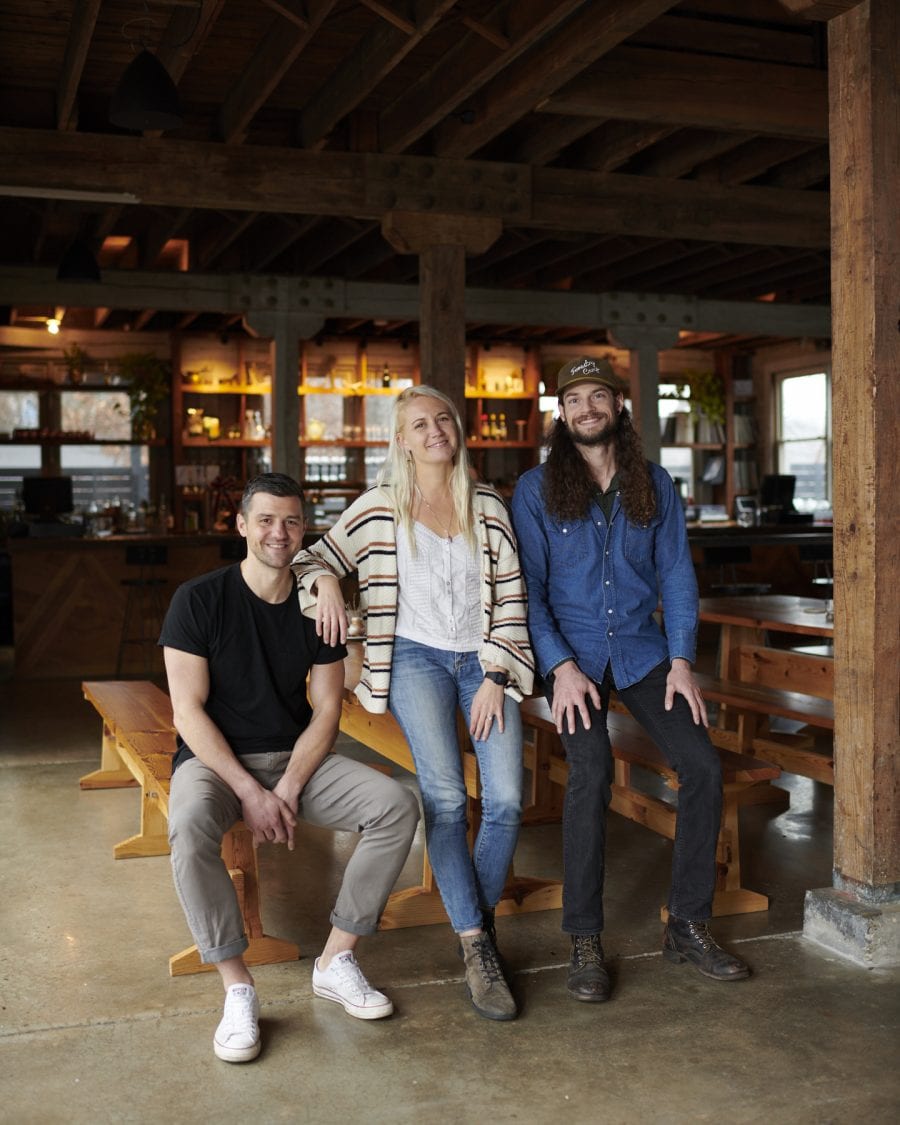
That’s a far cry from where Burial began in 2013, when a trio of Seattle transplants opened a one-barrel nanobrewery in a tiny storefront just south of downtown, in the process helping to pioneer the South Slope, Asheville’s warehouse zone turned brewery district. In the six years since, Jess Reiser and her husband, Doug, alongside friend and co-owner Tim Gormley have emerged as major players in Asheville’s craft beer boom. They purchased the historic property in late 2015 and began brewing there by fall of 2016. Three years of deliberate planning, permit acquisition, and meticulous refurbishments followed before all three phases of construction were completed, which culminated in this past fall’s opening of the restaurant and bar. The property spoke to them, Jess Reiser says. It was a chance to pay homage to history and revitalize something instead of building new.
But what’s that have to do with beer? For the owners of Burial: everything. The brewery has built its reputation on modernizing classic and historic beer styles, from crisp pilsners and rare grisettes and gruits to barrel-aged sour ales and IPA hop bombs. The cyclical nature of the harvest inspires Burial’s farmhouse ales and saisons as much as it does the brewery’s philosophy. Early beers all bore the names of crude farming tools—thresher, scythe, bolo. Burial’s logo brandishes a sickle.
A brewery by the name of Burial could easily fall down a rabbit hole of zombies and other tales from the crypt, but here, there’s poetry in everything’s eventual demise. In the words of Burial’s website: “We find glory in the things that once were so we choose to celebrate the things that have passed, the things that still are, and the things that will be again.”
Their original taproom on Asheville’s South Slope is a loveable dive bar, complete with a partial rusted-out truck in the backyard that gets climbed on by toddlers and tourists alike. The junkyard-cool setting serves as a foil to the city’s increasingly slick spaces for drinking beer. “We’ve never been a shiny brewery,” Jess Reiser says. Metal sheets and rusty nails once dotted their backyard like decor with a dangerous side.
Over-the-top descriptions herald every beer release and elaborate art graces each can. The latter is the handiwork of illustrator David Paul Seymour, who caught Gormley’s attention with his album and poster art for heavy-metal bands with names like Agnostic Front, Graveyard, and Church of Misery.
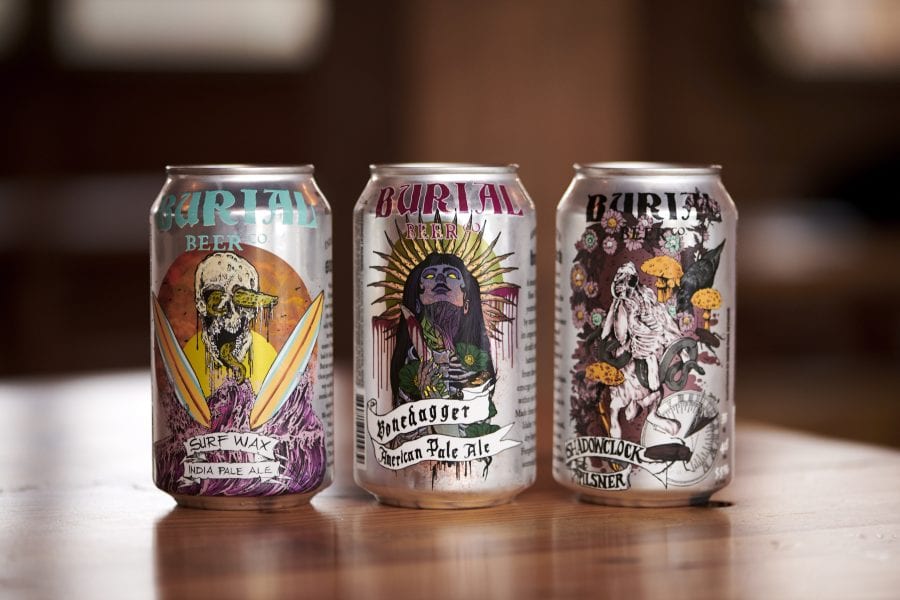
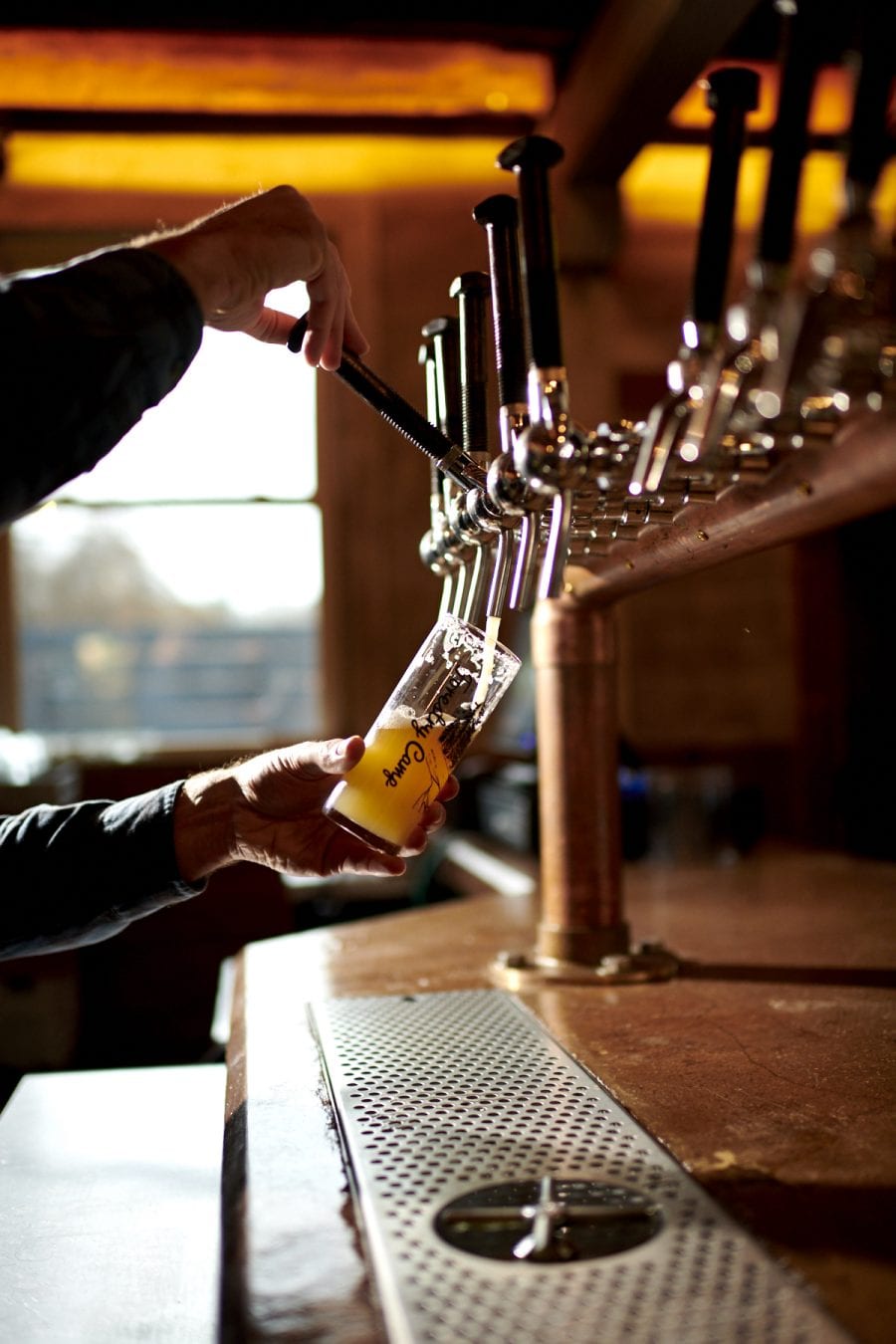
In early 2019, Burial opened an outpost in Raleigh to serve its loyal customers a few hours east and dubbed it the Exhibit. It’s a showcase for the brewery’s distinctive art aesthetic, which combines Seymour’s gothic style with the Burial founders’ love of Renaissance art.
As for Forestry Camp’s aesthetic, history informs its character but never limits it. Gormley felt so passionate about the project he stepped away from brewing to spearhead the process. On a tour of the finished property, he speaks as excitedly about the building’s original coal chute as the exclusive beer list. “I felt very inspired by this place and constantly had ideas that I could see clearly,” he says. “Now I just want to be the host of the party.”
REINCARNATIONS
The atmosphere of Forestry Camp takes patrons out of the city and into the woods, but the aromas wafting from the kitchen transports guests farther afield still—to an entirely different set of mountains, the Pyrenees of northern Spain and southwestern France.
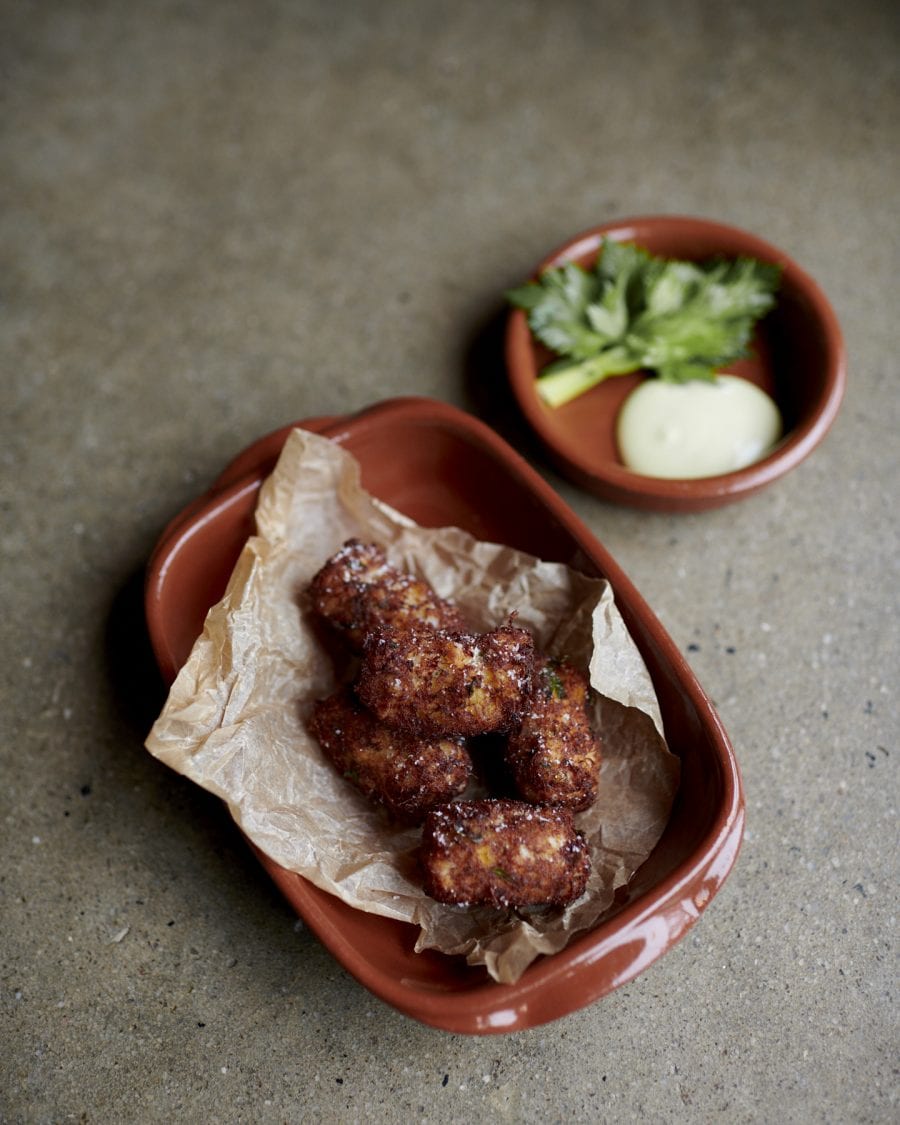
From squid rice to bacalao, the food menu is as ambitious as the setting is storied. At the walk-in bar on the first floor, communal picnic tables built from the property’s abundance of yellow pine evoke the rustic cider houses prevalent in Basque Country. Bar snacks here include crispy Gernika peppers and flaky cod tater tots. Climb the stairs to the intimate dining room, where the Basque immersion takes the form of whole grilled Carolina trout and epic cuts of pork.
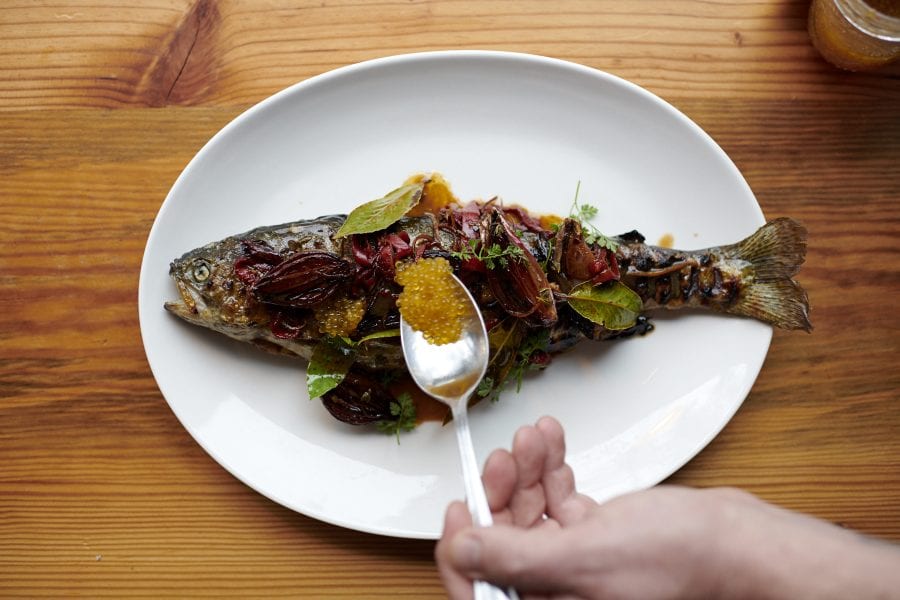
At the kitchen’s helm is Brian Canipelli, the James Beard-nominated chef behind downtown’s Cucina 24, a date-night mainstay for creative, locally sourced Italian fare. Canipelli also serves up refined snacks, burgers, and sandwiches at Burial’s original taproom from a makeshift food trailer sidled up to the brewery.
Naturally, the party continues with the beverage program, which features rare beers and wines from near and far. Burial beers only occupy two to four of the taps. That leaves more than a dozen lines open for beers made by its contemporaries—from American wild ales by Pen Druid in the Virginia hamlet of Sperryville to coveted IPAs from J. Wakefield in Miami. Burial has always been big on collaborations with other like-minded breweries, and the past few years have resulted in friendships across the wide world of craft beer. Forestry Camp extends an invitation to the public to join in the fun.
“We’re literally reaching out to our friends and asking them to send us things they’re proud of, and leaning on that personal relationship [to make it happen],” Gormley explains.
The draft menu rotates at a brisk pace, guaranteeing there’s always a new surprise for patrons. “We wanted to share beer that inspires us that you can’t typically get in this area, and to be able to tell its story,” he says. “We can actually tell you about these people, what they do, and why they do it. The intentionality of these products is critical to their value.”
Doug Reiser echoes the sentiment. “We want to serve up not only the beer but the stories,” he says. “My dream is that every brewery we love and respect does something similar in their home states—that the brewers can be the guiding voice of craft beer.”
Building on that premise, Gormley makes the case that such an affinity for storytelling is the driving force behind every element of Forestry Camp. Behind the bar, a book of makers celebrates everyone who has helped shape the place, from fellow brewers and coffee roasters to woodworkers and record-store owners. Mounted above the dining room is a stuffed bear head—a hunting conquest from the local farmer who feeds Burial’s spent grain to his cattle. Even a section of stylish char on the walls is authentically gritty, pulled from another building on the property that sustained a fire a few years back.
At Forestry Camp, the Burial story continues to evolve. The Reisers first connected with the themes that inspire Burial as a young couple in New Orleans, where jazz funerals bring communities together to share in grief as well as joy. Likewise, Forestry Camp is a community gathering space in the truest sense of the term. Its transportive capacity doesn’t end with history and geography lessons.
Here, makers of all kinds are exalted—and compelling narratives have the power to elevate the beer experience to new heights. “The story of this property was bigger than the Burial brand and we wanted to honor that,” Jess Reiser says. “This is everyone’s space—not just ours.”

share
trending content
-
MICHELIN Recommended Dining in Auburn, Alabama
by TLP's Partners -
Protected: How to Eat Oysters
by TLP Editors -
9 Cookbooks To Gift This Season
by Erin Byers Murray -
Protected: Embark On an Oyster Experience
-
Protected: 4 Oyster Nonprofits To Know
by Jennifer Stewart Kornegay
More From In the Field
-
Protected: How to Eat Oysters
-
Protected: Embark On an Oyster Experience
-
Protected: 4 Oyster Nonprofits To Know
-
Protected: Why Does Oyster Farming Matter?
-
Protected: Meet an Expert Shucker: Jay Gallet
